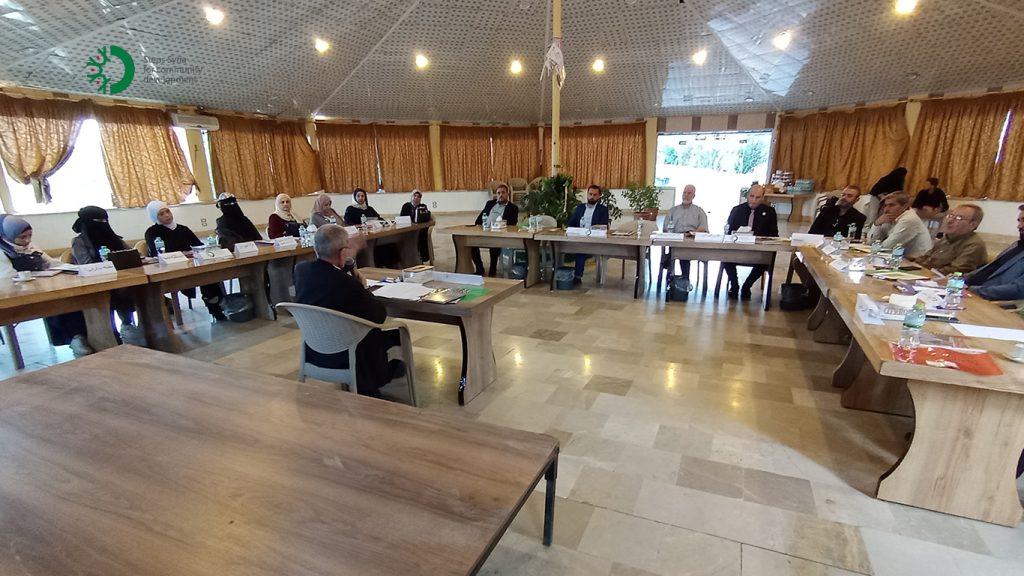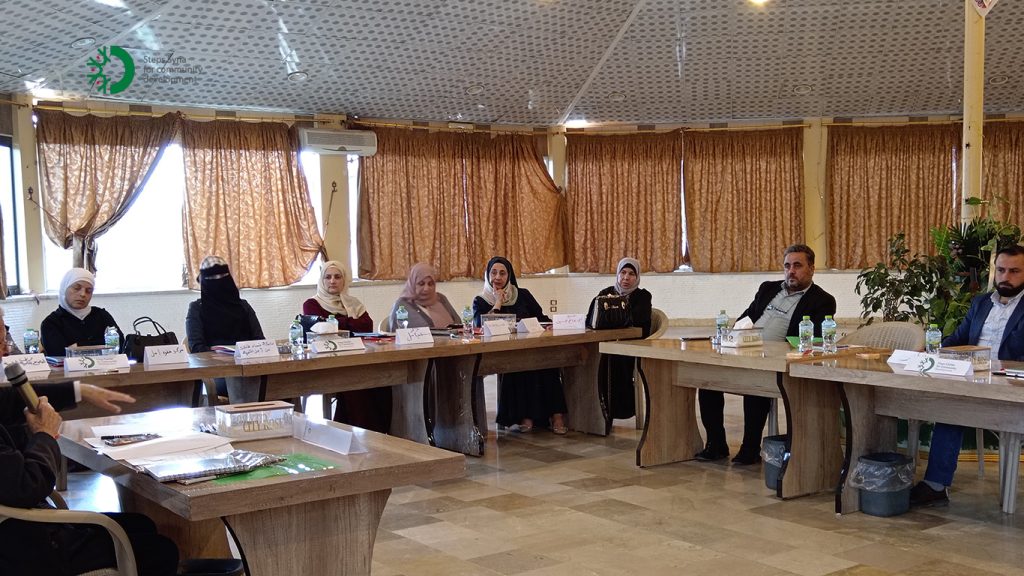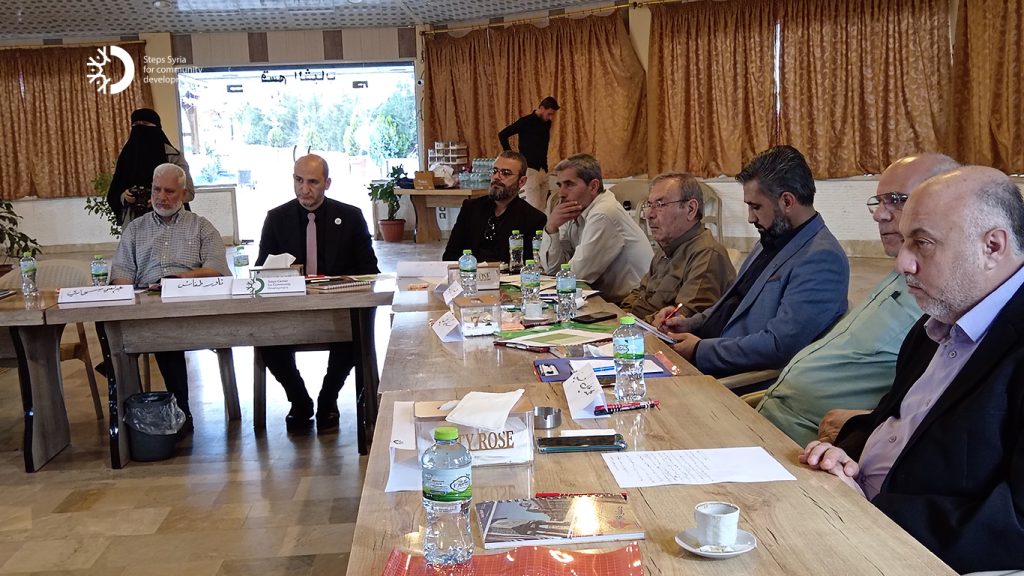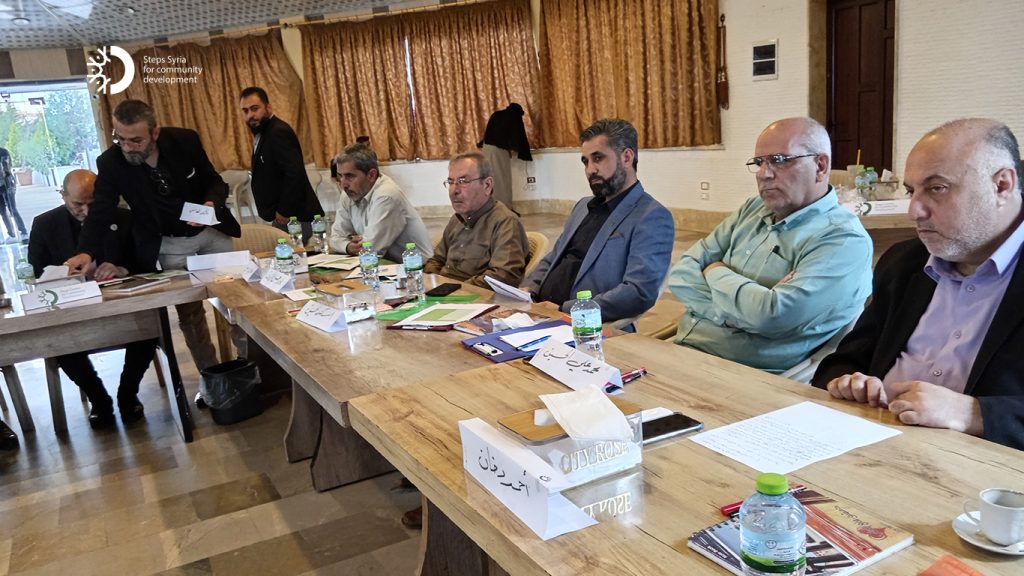Idlib | Steps Syria for Community Development Foundation
On April 26, 2025, the “Steps Syria for Community Development Foundation” in Idlib organized an extensive seminar titled “Economic Sanctions Imposed on Syria and Their Impact on Reconstruction and the Economy: A Legal Vision for Their Removal After the Fall of the Assad Regime.” Twenty-two participants, male and female, from diverse backgrounds including lawyers, economists, civil activists, representatives of women’s groups, and persons with disabilities, took part.
The six-hour seminar featured in-depth discussions on the background of the sanctions imposed on Syria, their direct impacts on civil society and the local economy, and possible legal and political avenues to alleviate their burden following the political changes in the country.
Comprehensive Agenda and High-Level Participation
The seminar opened with a welcoming speech from the Steps Center, followed by the presentation of a working agenda that covered multiple themes, most notably: the political background of the sanctions, their economic effects, conditions for their international lifting, comparative international experiences, and practical tools for mitigating them without compromising national sovereignty. The sessions included participation from the Head of the Lawyers Syndicate in Syria, Mr. Ahmed Dukhan, and the Head of the Economists Syndicate, Mr. Mohammed Al-Bakkour, lending an official and expert character to the dialogue.
Dynamic Discussions… From Law to Humanity
Veteran lawyer Radwan Ayash—considered a legal authority in northern Syria—moderated the dialogue sessions in an interactive manner, focusing on the legal aspects of the sanctions and their evolution from 2011 until today. Ayash explained that the continued imposition of sanctions even after the fall of the former regime raises fundamental legal and political questions about the objectives of the international community and its stance on the new government.
The sessions witnessed diverse interventions, including questions about the legitimacy of continuing sanctions after international recognition of the new government, and observations from feminist activists on their impact on humanitarian work. Lawyer Ali Kassoum also delivered a strong intervention on the necessity of differentiating between punishing regimes and societies, emphasizing that sanctions are now directly affecting Syrian citizens.
Cries from the Heart: The Voice of Persons with Disabilities
One of the most notable moments of the seminar was the intervention of activist Amani Al-Sayed, a person with disabilities, who spoke with great emotion about the suffering experienced by people with special needs under the weight of sanctions. Amani said:
“We are punished twice; once by the regime and once by the sanctions. Where is the humanity when we cannot find medicine or a wheelchair? We plead with the international community to hear us as human beings, not as numbers.”
Strategic Interventions: Partnerships, Media, and Soft Diplomacy
In the fourth session, Mr. Mohammed Al-Bakkour presented an economic vision based on creating flexible international partnerships and establishing external banking relationships to attract investments. Ms. Fatima, director of a women’s network, also emphasized the importance of media balance, calling for the production of humanitarian media content that shows the changes taking place in Syria and appeals to the global conscience to push for sanction relief.
Participants affirmed that breaking the economic blockade requires a multi-dimensional discourse that includes the voices of those affected, and that media is a vital tool for changing international public opinion.
Watch the video: https://www.facebook.com/Soria.plus/videos/675034405119583





